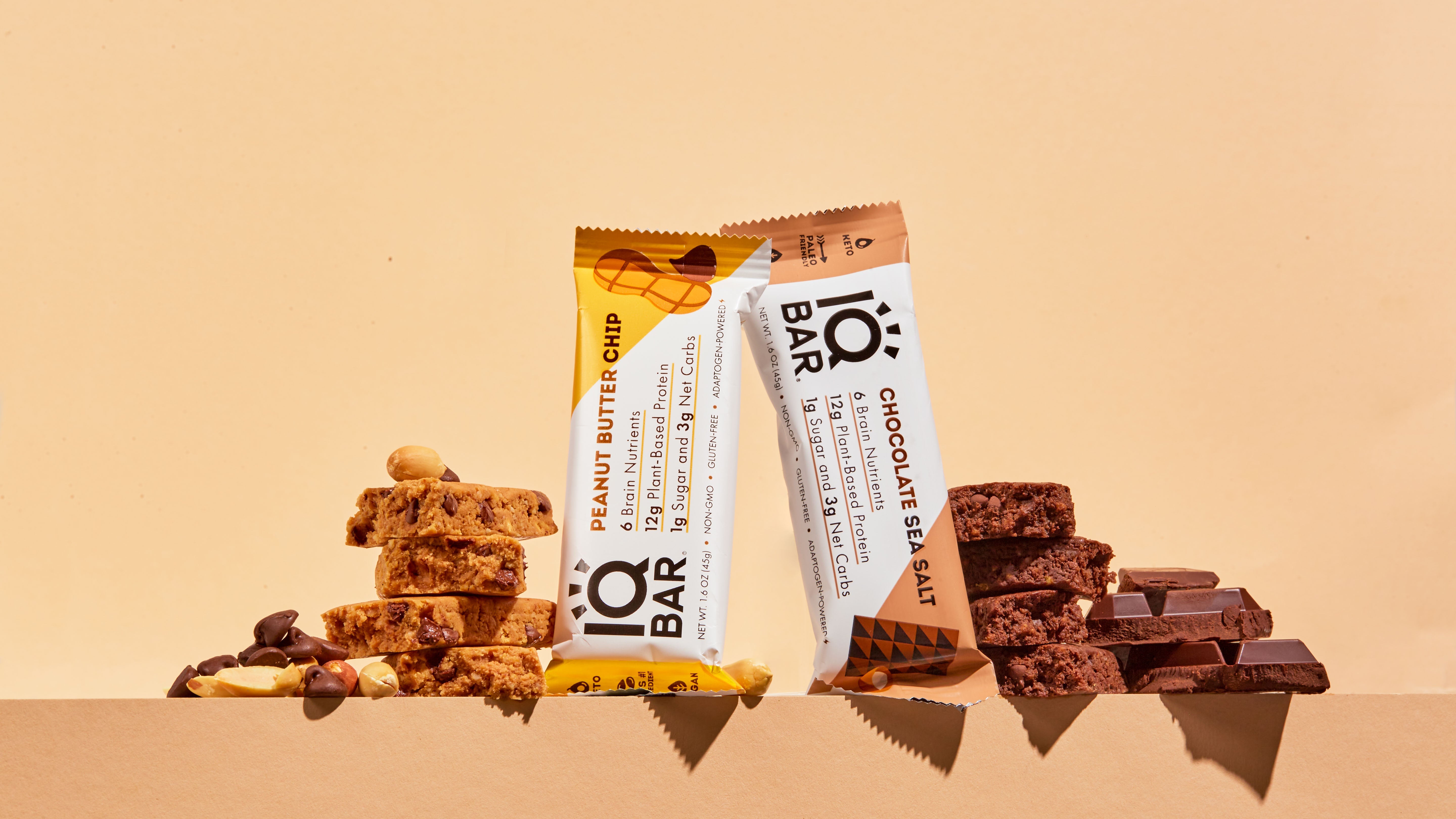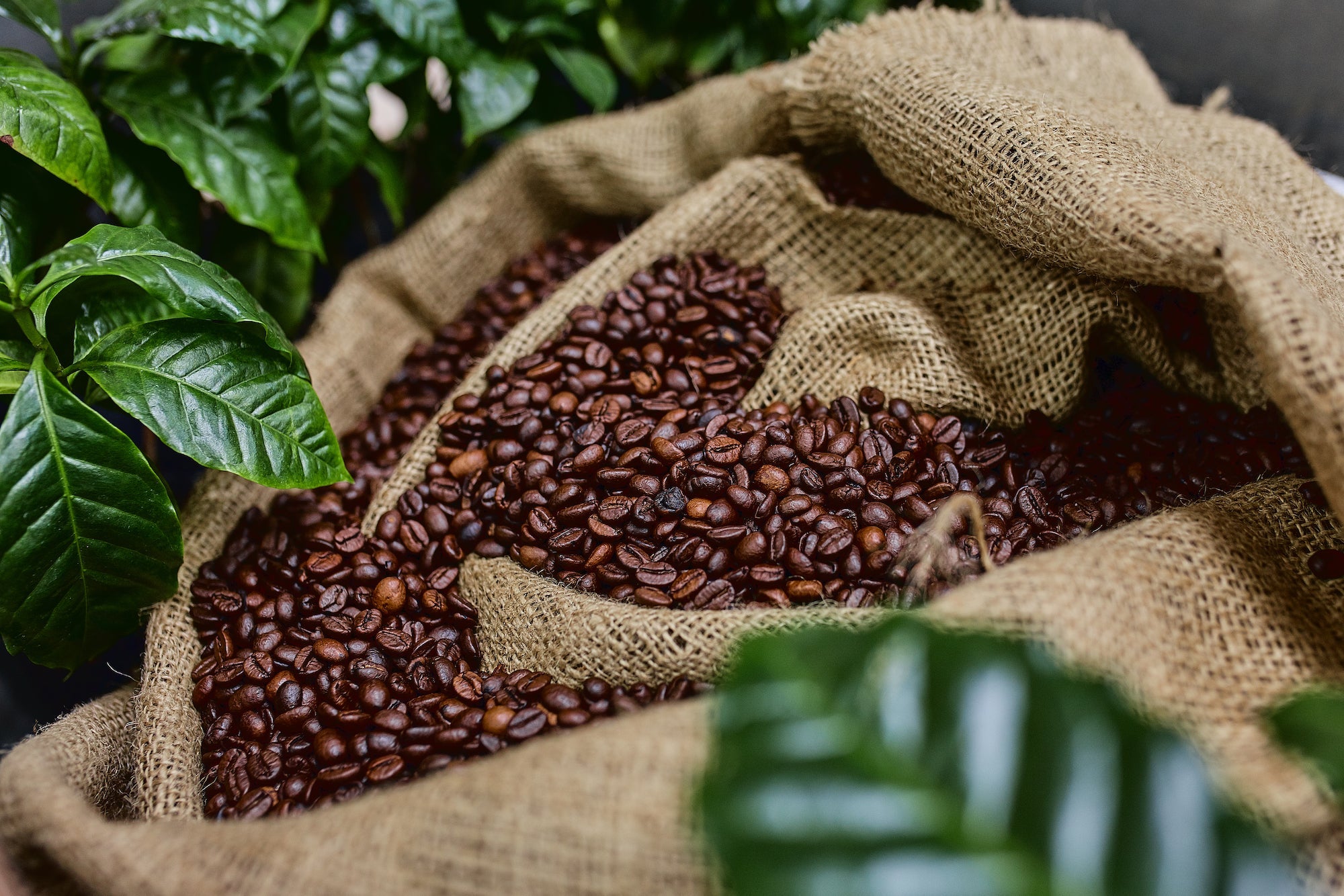Energy drinks are the fastest-growing product in the beverage industry, and it’s easy to see why.[*] They offer a rapid jolt of energy to fire up a sluggish brain or kick your body into high gear.
But what’s actually inside that massively-marketed pick-me-up? While the caffeine in coffee is an all-natural stimulant, the buzz you get from energy drinks comes from a mix of sugar and lab-made sources.
Those fake boosters may need a closer inspection when it comes to your health, especially if energy drinks are a daily or even multiple times per day indulgence.
So let’s dive into the science behind coffee vs. energy drinks to get the whole picture.
Coffee vs. Energy Drinks: The Caffeine Baseline
Coffee and energy drinks both contain caffeine. You’ll naturally find this stimulant in coffee beans, tea leaves, cocoa beans, and kola nuts.[*] It amplifies neurotransmitter activity in your brain, so signals start firing more rapidly.[*]
Studies show that caffeine’s brain effects include:[*]
- Higher focus, concentration, and attention[*]
- Faster information processing and reaction times[*]
- Improved mental performance[*]
- Better learning abilities and memory recall[*][*]
- Greater alertness (even if you’re fatigued)[*]
- Positive moods[*]
These perks may be why nearly 90% of Americans consume around 200 milligrams of caffeine daily.[*]
But How Much Caffeine Is Too Much Caffeine?
Is high-caffeine coffee good for you? The FDA says it’s generally safe for most adults to consume 400 milligrams of caffeine daily without any adverse side effects.[*]
To put that in perspective, a cup of coffee (8 ounces) may contain anywhere from 70 to 140 mg of caffeine when you make it at home. You can control the strength of your cup of Joe depending on your preferred coffee beans, roast level, brew strength, water amount, etc.
But you have zero control over the zoom you’ll get from an energy drink. Here’s a quick comparison of the caffeine content in the most popular types:[*]
- Bang (16 oz.): 300 mg
- 5-Hour Energy Extra Strength (1.9 oz.): 230 mg
- Starbucks Tripleshot Energy (15 oz.): 225 mg
- Monster Energy (16 oz.): 160 mg
- Rockstar Original (16 oz.): 160 mg
- Redbull (8 oz.): 80 mg
While most energy drinks contain more caffeine than a standard black coffee, they’re often consumed faster and more repeatedly during the day. This makes it way too easy to skyrocket your caffeine intake, which can cause:[*]
- Jitters and anxiety
- Fast heart rate
- Nausea
- Headaches
- Poor moods
- Insomnia
There have been thousands of emergency room visits stemming from energy drinks and numerous wrongful death lawsuits against manufacturers. Researchers say the most frequently reported adverse events include:[*][*][*]
- Jitteriness/restlessness/shaking hands
- Heart arrhythmias (irregular or abnormal heartbeat)
- Elevated blood pressure
- Seizures
- Aneurysm formation
- Dissection and rupture of large arteries
- Liver and kidney injury
- Psychotic symptoms
- Gastrointestinal upset
- Insomnia
Scientists believe these negative outcomes result from energy drinks that combine higher caffeine levels with added sugars and other stimulants.
What’s Really In Energy Drinks?
Energy drinks are a concoction of ingredients designed to provide a quick jolt. Though they vary among brands, the most common components (besides caffeine) include:[*]
Heaps of Sugar (or Artificial Sweeteners)
The sugar content in most energy drinks should classify them as dessert. The average can contains 41 grams of sugar![*] Excessive sugar intake can lead to weight gain and obesity while increasing your risks of type 2 diabetes, heart disease, gout, Alzheimer’s, and more.[*][*]
Health consequences aside, large amounts of sugar swiftly spike your blood sugar levels. You’ll feel as if your batteries are on full charge. But once that sugar high wears off, you’ll be in for a severe sugar crash, intense sugar cravings, and the worst brain fog.
What about sugar-free energy drinks? Artificial sweeteners still cause bloating, diarrhea, headaches, migraines, overeating, and other unpleasant side effects.[*][*]
Natural Supplements and Synthetic Stimulants
Some energy drinks contain naturally derived caffeine from coffee, tea leaves, guarana, etc. However, many contain synthetically produced caffeine from overseas pharmaceutical plants.[*]
To hide this fact, many energy drink manufacturers add “natural supplements” that make consumers feel better about what’s in their cans, such as:
- B-vitamins
- Amino acids like taurine and L-carnitine
- Herbs and extracts, including ginseng, guarana, yerba mate, ginkgo biloba, and green tea.
Many people believe these additions boast stimulating, energizing properties. However, the effects can vary, and scientific evidence may be limited.
Preservatives and Artificial Additives
Energy drinks often contain preservatives, synthetic flavorings, dyes, and other additives to enhance flavor, color, and shelf life. These have all raised health concerns within the scientific community.[*][*]
Sip Smarter: The Incredible Health Benefits of Coffee
So why do coffee and energy drinks feel different? It’s because coffee is naturally sugar-free, doesn’t contain artificial ingredients, and offers a moderate amount of caffeine to ensure a steady energy boost.
Coffee makes a smarter choice because:
It’s Loaded with Antioxidants
There are over a thousand bioactive compounds in a cup of coffee, including magnesium, potassium, and vitamin B3 (niacin).[*][*] Most of coffee’s health benefits are thanks to its high amount of antioxidants.[*]
Antioxidants neutralize and scavenge free radicals that attack our cells.[*][*] Their damage would otherwise create chronic inflammation and increase our risk of age-related diseases, cancer, neurodegeneration, and more.[*][*]
So the powerful anti-inflammatory antioxidants in coffee may prevent memory loss, preserve brain health, and reduce our risks of:[*][*]
- Type 2 diabetes[*]
- Heart disease[*]
- Certain types of cancer[*]
- Alzheimer’s and Parkinson’s[*]
Bonus: Research comparing instant, brewed coffee, and espresso revealed that instant coffee contains way more total antioxidants.[*][*]
Though you can snag antioxidants from berries and veggies, scoring them from your favorite homemade coffee drinks is pretty awesome.
You Can Customize Your Healthiest Brew
Whether you’re seeking vegan coffee, metabolism-boosting keto coffee, or something in between, customization is one of the best perks of coffee vs. energy drinks.
Since you’re not confined to working with whatever’s in the can, you can summon your magic barista powers to craft the most beneficial types of coffee according to your needs.
Want to amplify your brain power? Add some nootropics. These “smart drugs” may enhance your memory, mental performance, focus, productivity, creativity, and motivation.[*] Besides coffee, the most popular nootropics include Lion’s Mane (aka the “smart mushroom”), magnesium, and MCT oil or MCT powder.
🧠 Magnesium Coffee: A Blend That Supports Brain and Body
Need a stress detox? Go for adaptogens. These plants and fungi help you grow new brain cells and improve your intellectual prowess. They also empower you to better cope with stress and feel more zen.[*][*][*] We’re partial to Lion’s Mane in this department.
🍄 Everything You Need To Know About Adaptogenic Coffee
Craving a coffee shop indulgence sans sugar? Check out our fave sugar-free coffee tips. You’ll kick your sugar habit (without the FOMO) and elevate your morning ritual in one go.
IQJOE: Energy Drink Convenience, Coffee Health Benefits
Despite their downsides, energy drinks are still super convenient when you need a quick caffeine fix. But what if you could score an equally fast and vastly healthier coffee instead?
Feast your eyes on IQJOE, our version of instant coffee done right. Each travel-ready packet contains:
- 200 mg of Organic Caffeine. Our blend of green and Brazilian coffee makes a clean, sustainable, delightful treat for your tastebuds. It also delivers long-lasting, crash-proof, jitter-free energy.
- 750 mg Magtein®️ (Magnesium L-Threonate) to raise your mood and mental performance to new heights.
- 250 mg 8X-Concentrated Lion's Mane Extract to take the edge off caffeine and make room for chill vibes, productivity, and creativity to flourish.
IQJOE is keto, vegan, non-GMO, and gluten-, dairy-, and soy-free. It’s all the good stuff without any of the sugar, artificial sweeteners, or additives in energy drinks.
Just add one IQJOE sleeve to 8-12 oz. of hot water, stir until dissolved (about a minute), and prepare to blast through your brain fog!
☕ Skip the neon fruit punch energy drink and treat yourself to our Original Black, Vanilla Spice, Toasted Hazelnut, and Caffè Mocha IQJOE flavors.
Choose Wisely, Caffeine Seeker
Energy drinks might give you wings momentarily, but at what cost? The excessive sugar and caffeine can send your body on a nightmarish rollercoaster ride that ends with an unpleasant crash.
That’s why coffee is the hands-down winner. With its antioxidant army, clean ingredients label, and endless customization options, it’s the true wellness champion your body and noggin need.
⚡ Ready to ditch energy drinks for good? It’s easy when you keep the IQJOE Variety Pack on hand for rapid pick-me-ups. Grab yours now to stash sleeves in your pantry, desk, gym bag, and anywhere you need to be on your game!
Written by Lauren Ciccarelli, a writer and research geek passionate about low-carb nutrition, mental health, and meditation. Her 2,500+ articles empower doers with science-backed tips for leveled-up living.


